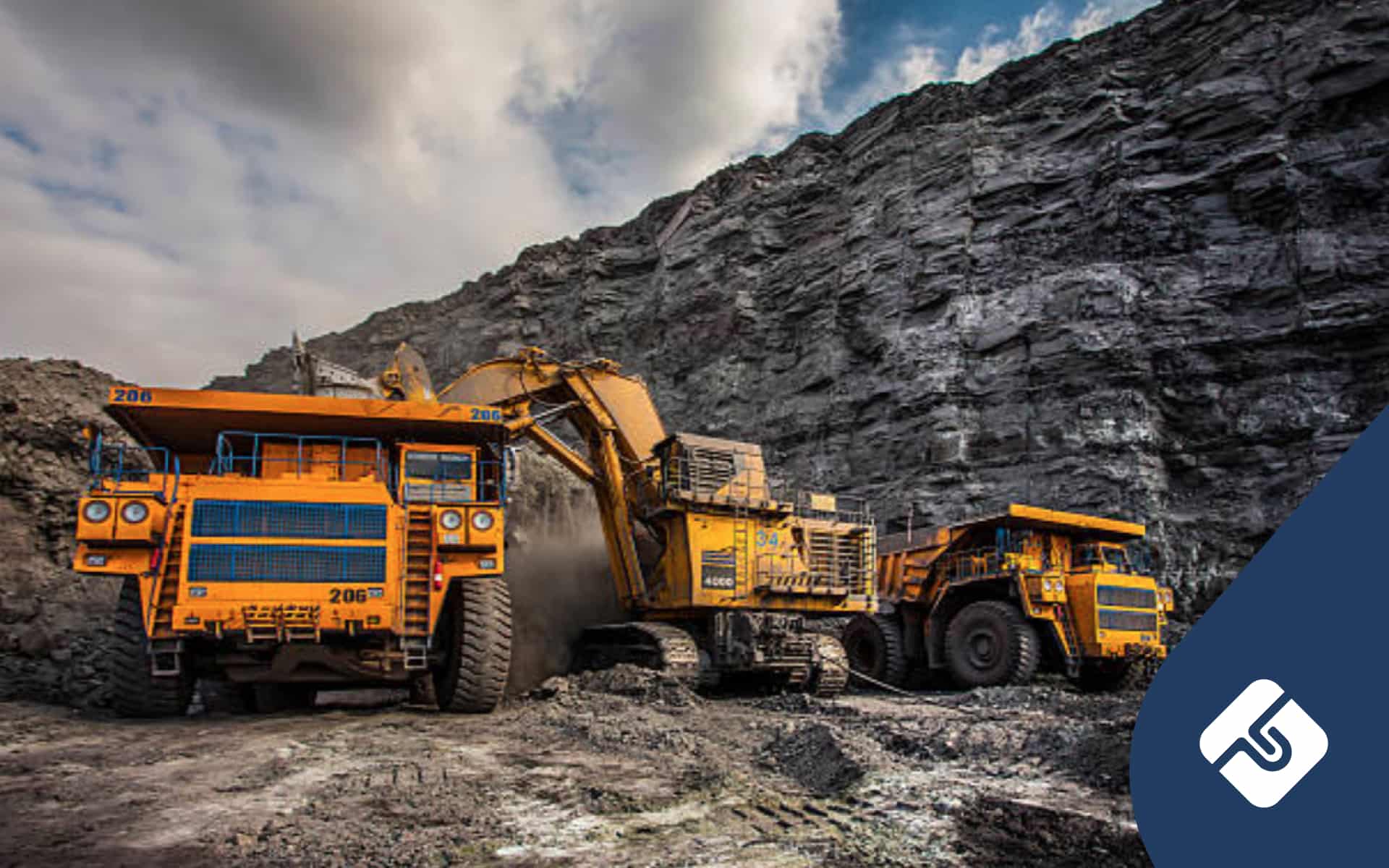Sydney-based lawyer. Formerly Legal Content Writer at Lawpath.
Starting a mining business in Australia can be lucrative, but it’s not without its hurdles. Many entrepreneurs are drawn to the sector, only to find themselves tangled in a web of complex regulations, daunting capital requirements, and environmental obligations.
The process of launching even a small-scale mining operation can seem overwhelming, but it doesn’t need to be. This guide will go through the process step by step, breaking down the legal, financial, and operational requirements for you to get started.
Table of Contents
What is considered small-scale mining in Australia?
Small-scale mining in Australia is defined by both legal and operational thresholds, which vary by state and territory. Legally, small-scale mining typically refers to operations that extract minerals on a limited scale, often below certain output, revenue, or land disturbance thresholds.
For example, in Queensland, a “small-scale mining activity” is one conducted under a mining claim (such as for opal, gemstones, or precious stones) over an area not exceeding 20 hectares and which does not disturb more than 5 hectares of land at any time. These activities are regulated under the Mineral Resources Act 1989 and are subject to specific codes of practice designed to minimise environmental and land use impacts.
From a business perspective, there are different types of small-scale mining operations, which usually focus on niche or high-value commodities. Examples include:
- Opal mining: Typically carried out by individuals or small partnerships using hand tools or small machinery, often under small mining leases or claims.
- Alluvial gold mining: Involves extracting gold from riverbeds or surface deposits, usually with basic equipment and minimal land disturbance.
The main distinction from large-scale mining is the scale of investment, workforce, and environmental footprint. Large-scale operations may involve extensive exploration tenements, significant capital outlays, and complex infrastructure, while small-scale mining is more agile and often community-based.

Get on demand legal advice for one low monthly fee.
Sign up to our Legal Advice Plan and access professional legal advice whenever you need it.
Why do many prefer small-scale mining over large-scale operations
Entrepreneurs gravitate towards small-scale mining for several strategic reasons.
- Lower upfront capital: Small-scale mining business startup costs are much lower in terms of machinery, infrastructure, and land acquisition, making entry more accessible.
- Simpler permitting: Small-scale mining permits in Australia are generally less difficult to obtain. They feature streamlined processes for claims and licences compared to the complex approvals required for large-scale projects.
- Operational flexibility: Small-scale miners can adapt quickly to market changes, target high-grade deposits, and exit unprofitable ventures with minimal sunk costs.
- Regional opportunities: Many small deposits are located in remote or regional areas, offering local employment and economic benefits without the need for large-scale industrialisation.
- Fewer environmental constraints: Some small-scale activities, particularly those with minimal land disturbance, may qualify for reduced environmental assessment requirements, although all operations must comply with core environmental standards.
These factors combine to make small-scale mining an attractive option if you are looking to enter the industry without the risks and commitments of large-scale operations.

Get a fixed-fee quote from Australia's largest lawyer marketplace.
Legal steps to start a small-scale mining business
There are several key legal requirements for small mining businesses in Australia. Here is a step-by-step guide.
1. Choose your business structure and register the entity
The success of your business can depend on the structure you choose. Some business structures can provide risk protection and tax benefits, whereas some might create higher tax liability.
- Sole trader: This can be a low-cost option for an individual running the business. A sole trader and their company are considered the same entity, and hence, they are responsible for the company’s debts and obligations.
- Partnership: A partnership is controlled by two or more people who also share the debts and obligations of the company.
- Company: A company has a complex structure and can legally sue and be sued. In other words, it is a legal entity in itself. Companies are incorporated under the Corporations Act 2001 (Cth) and are governed by the Australian Securities and Investments Commission (ASIC).
You can decide your business structure based on some of the following factors:
- Ownership: If you want to co-own the company with another partner, you can register as a partnership. Here, the obligations of the company will be divided between the partners.
- Taxation: In Australia, a company has a lower tax rate than the highest tax bracket for individuals. Therefore, registering as a company can have lower tax obligations. However, companies might have higher regulatory costs.
Your mining business, like all businesses in Australia, needs to be registered. In order to register your business, you will need to apply for an Australian Business Number (ABN) using your business name to operate in Australia. An ABN also enables you to apply for the Goods and Services Tax (GST) concessions.

Legal Health Check for Small Business
Uncover your small business’ legal gaps in minutes with this award-winning tool.
2. Understand local, state, and federal regulatory requirements
Mining in Australia is regulated at multiple levels:
- State/Territory Departments: Each state has its own regulatory body (e.g., Department of Resources in QLD, Earth Resources in VIC) responsible for issuing mining permits, overseeing land access, and enforcing compliance.
- Land access and Native Title: Before commencing operations, you must secure land access agreements with private landholders and address any Native Title considerations, which may involve consultation with traditional owners and, in some cases, compensation or cultural heritage agreements.
- Licensing tiers: Mining licences in Australia are typically divided into exploration (prospecting) and production (mining) categories. Exploration licences allow you to survey and sample but not to extract minerals for sale.
3. Apply for mining permits and licences
Once you are set to start your business, you will need to apply for a mining licence, depending on the region where you plan to operate.
- Queensland: In Queensland, you need to apply for a mining lease. Before the lease is granted, you will need to meet approval requirements, such as environmental approvals, native title and Aboriginal cultural heritage agreements, private landowners’ compensation, and addressing any objections to the application.
- Western Australia: In Western Australia, you need to apply for a mining licence, subject to approval of other requirements, such as employee training and sufficient financial resources.
- Tasmania: You can apply for a mining licence based on the mineral you are hoping to extract.
- New South Wales (NSW): In NSW, you can apply for an exploration or mining lease. If you apply for a mining lease, you must demonstrate that the area has viable resources and that you have the funding to conduct mining.
- Victoria: You can apply for an exploration licence, a mining licence, a prospecting licence, a retention licence or buy a miner’s right to conduct any mining activity in Victoria.
- South Australia: You can apply for a mining licence or exploration licence based on your needs in South Australia. An exploration licence does not grant mining rights.
So, depending on your area of operation, you can apply for licences and permits. You can only begin mining activity upon approval of your mining permit. This can be a complicated process. Talking to a lawyer can help streamline this process.
4. Prepare environmental and rehabilitation documentation
Beyond licensing, environmental compliance is a cornerstone of mining regulation in Australia. You’ll need to consider the following:
- Environmental Impact Statements (EIS): Larger or higher-risk projects may require a comprehensive EIS detailing potential impacts and mitigation strategies.
- Safety management plans: All mining operations must implement systems to manage workplace safety and health risks.
- Rehabilitation bonds: You may be required to lodge a bond or financial assurance to ensure funds are available for land rehabilitation after mining ceases.
State-based environmental protection agencies enforce these requirements, and non-compliance can result in significant penalties.
Financial planning and startup costs
Launching a small-scale mining business involves both upfront and ongoing expenses.
- Initial outlay: You’ll need to pay for permits and licences, small-scale mining equipment purchase or hire, insurance, legal and accounting fees, and initial site preparation.
- Ongoing costs: Once the business is running, consider costs like labour, fuel, equipment maintenance, transport, compliance reporting, and rehabilitation activities.
Startup costs can range from tens of thousands to several hundred thousand dollars, depending on the mineral, location, and scale. It’s essential to work with an accountant experienced in mining to develop a realistic budget and cash flow forecast.
Equipment and resourcing: What do you really need?
The type of equipment you’ll need will depend significantly on the kind of mining you perform. For example, here are some things you will need for the following types of mining:
- Opal mining: auger drills, jackhammers, winches, blowers, and safety gear
- Alluvial gold: sluice boxes, crushers, pumps, excavators, and hand tools
- General requirements: personal protective equipment (PPE), first aid kits, site shelters, and communication devices
Consider hiring or purchasing second-hand equipment to reduce capital costs, especially during the initial phase. Also, remember that you can write off capital and other expenses during the tax season to offset some of these start-up costs.
Risk, liability, and insurance in small-scale mining
Mining carries significant risks, including environmental breaches, worker safety, license non-compliance, and equipment damage.
Mitigate these risks with appropriate insurance, such as public liability, workers’ compensation, and equipment cover. Compliance with WorkSafe and state-based WHS obligations is mandatory.
Legal and tax obligations after launch
Once operational, your mining business must meet ongoing legal and tax requirements.
- Royalties: You must pay royalties to the state or territory based on the value or volume of minerals extracted. Rates and calculation methods vary by jurisdiction.
- BAS and income tax: Regular Business Activity Statements (BAS) and annual income tax returns are required. If you employ staff, payroll tax and superannuation obligations apply.
- Lease renewals and contracts: You’ll also need to ensure that you are regularly renewing leases, managing contractor agreements, and ensuring ongoing compliance with Native Title and land access laws.
Overlooking your legal and tax obligations can lead to serious penalties and additional costs. Make sure to stay on top of your responsibilities by keeping a comprehensive calendar with due dates and a list of legal obligations.
Final checklist for getting your mining business off the ground
- Choose and register your business structure (sole trader, partnership, or company).
- Obtain an ABN and register for GST (if applicable).
- Secure land access and address Native Title requirements.
- Apply for relevant permits and licences via ABLIS.
- Prepare environmental and safety documentation.
- Arrange insurance and risk management plans.
- Source equipment and assemble your team.
- Set up accounting systems and engage a mining-savvy accountant.
- Maintain ongoing compliance with tax, royalty, and environmental obligations.
For more tips and guidance, check out our e-book on starting a company.
FAQ
Do I need a licence to start small-scale mining in Australia?
Yes, you must obtain the relevant mining claim, lease, or licence for your mineral and location before commencing any extraction activities.
Are there grants available for small-scale mining businesses?
Some state and federal programs offer grants or incentives for exploration, innovation, or regional development. Check with your local resources department or business advisory service for current opportunities.
Do I need to consult traditional landowners before starting?
Yes, suppose your proposed mining area is subject to Native Title or cultural heritage considerations. In that case, you must consult and, where required, reach an agreement with traditional landowners prior to commencing operations.
Launch your small-scale mining business today
Starting a small-scale mining business in Australia is a complex but achievable goal with the right planning and support. By understanding legal requirements, managing risks, and building a solid legal foundation, you can turn your mining ambitions into a compliant and profitable business.
For expert legal advice on business compliance, Lawpath is here to help every step of the way.






